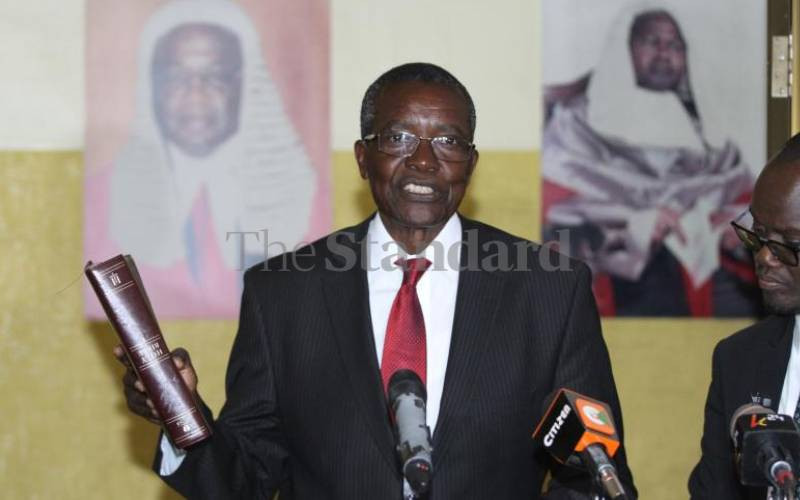×
The Standard e-Paper
Home To Bold Columnists

The National Police Service (NPS) suffers a malignant cancer of corruption that begins at the recruitment level, where majority of slots are handed over to wealthy individuals, Members of Parliament, Cabinet officials, and top police officers, a report by retired Chief Justice David Maraga task force has said.
This practice, so entrenched in the service has left only a few positions for Kenyans to win on merit and despite qualifying, the entrants are forced to pay around Sh600,000 bribe to be recruited into the service.